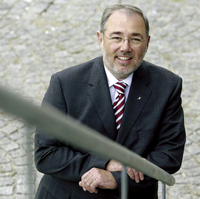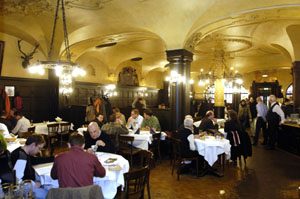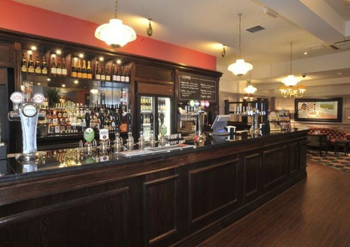The Oriental Brewery deal, which was announced on 7 May 2009, gives AB-InBev the right to buy back Oriental Brewery within five years at “predetermined financial terms,” it was reported. The exact financial terms were not disclosed.
The on-trade sector (pubs, restaurants) has been affected most by the decline in beer consumption. Publicans blame it on the ban on smoking which was introduced in Ireland in 2004. According to a survey by the Irish Department of Health, published in 2007, one in three adults smokes.
To further the dialogue with the brewing industry the German hop growers (Association of German Hop Growers, Hop Growers Association Tettnang and HVG Hop Processing Cooperative) invite engineers and buyers from breweries throughout the world to participate in the event which takes place from 21-22 August 2009 and is themed “From farmer to brewer”.
Due to the sizeable fall in sales, Krones’ made a loss of EUR 4 million during the first quarter 2009 compared to EUR 45.6 million in earnings before tax a year ago.
When it comes to beer sales, the first quarter each year always happens to be the least significant. From January to March Germany’s brewers sold 20.7 million hl beer – the lowest sales since Germany’s Office for Statistics began its records in 1993 (for a re-united German state, that is).
Those who are not familiar with Munich’s Who’s Who of beer, there are currently four breweries in Munich: Spaten-Löwenbräu (owned by InBev), Paulaner (controlled by Schörghuber/Heineken), Augustiner (controlled by a charity) and Hofbräu (owned by the State). Hypothetically, of the four, only Spaten-Löwenbräu and Paulaner could be put up for sale.
We’ve seen this before. For years, pundits had scolded Heineken for not entering the Russian beer market in a big way. They said: “Everybody’s here, even Efes. But where’s Heineken?” Well, they just had to be patient. In the end, Heineken did a few deals in quick succession and rose to number three position with a market share of 13 percent (according to company figures).
It was the first time Heineken released first quarter figures. They showed that western Europeans drank 9.8 percent less of its brands such as Heineken, Foster’s and Amstel. Central and east Europeans’ thirst diminished by 12 percent while consumption in the Americas declined by 16 percent.
On 23 April the Managing Director of the Bavarian Brewers’ Association, Lothar Ebbertz called Mr Burgard’s proposal “dishonest” as it raised expectations which could not be fulfilled. There was no scope for lowering beer prices, Mr Ebbertz said, given that raw materials and energy still added a significant chunk to brewery costs.
Last year, the chancellor raised alcohol duty by an above-inflation 6 percent and said alcohol duty rates would increase by 2 percent above the rate of inflation in each of the next four years.






